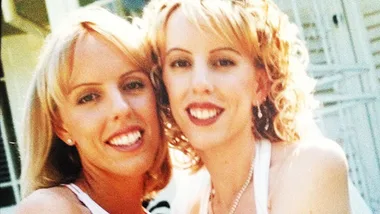Paying the bills might be a cinch when you’re taking home a regular pay check. But it pays to be prepared for the unexpected.
It’s easy to think it’ll never happen to you. You’ll always be fit and able, capable of earning a living to pay the bills and provide for your family. But if sickness or injury were to strike, all that could change in an instant.
“People think no bullet has their name on,” says financial advisor Jenny Moss, managing director of Moss Financial Services (www.mossfinancial.com.au). “Or they think the government will provide for them if they get sick or injured. But that’s not always the case, and even if help is available, it is limited and chances are your lifestyle will have to change drastically.”
The costs of injury or illness can be enormous and few people have the necessary savings. “Imagine an accident leaves you disabled and you need a scooter to get around,” Jenny says. “That’s about $9000, plus $400 for every battery. A stairlift is about $7000, with a special bed costing between $3000 and $5000. Things soon start to add up.”
Chronic illness can also drain your cash, with 24-hour live-in care costing around $140,000 a year. When you think the maximum single-person disability support pension from Centrelink is $701.10 a fortnight — and you’re not guaranteed that — the sums just don’t add up.
“Illness can send you bankrupt very quickly,” Jenny says. “But there are things you can do, such as taking out the following insurance policies.”
Income replacement insurance:
“This is the first thing I’d recommend,” Jenny says. “It covers a percentage of your salary if you’re unable to work. Depending on your occupation you can usually get cover until you’re 65.”
Policies typically pay around 75 percent of your wages and will also pay your superannuation. “This is because if you’re not working, no-one’s paying any super for you,” Jenny says.
With Centrelink’s age pension paying a maximum of $644.20 a fortnight for a single person, your super could help you enjoy a comfortable retirement rather than a challenging one. Income replacement insurance policies can cover any length of time.
“But I’d recommend having one until you retire, especially if you’re accident-prone or take part in high-risk activities like skiing,” Jenny says. Premiums are tax deductible, but income received from them is taxed.
Life insurance:
“The cost of this varies depending on things like your age, hobbies and health,” Jenny says. You pay a monthly premium, then the insurance company pays out a lump sum if you die or get diagnosed with a terminal illness.
“This type of insurance brings real peace of mind and can help secure the standard of living you and your family have become used to if something unexpected happens,” Jenny says.
Some people will already be covered by their super fund or even their employer, but it’s unlikely the level of cover will be as much as you need, so take time to find out.
“And for a belt and braces approach take, out a policy that includes total and permanent disability insurance, so you’ll receive a lump sum if you become disabled,” Jenny says. You can then invest that money to ensure some kind of income in the future.
Be prepared:
It’s easy to think someone else can provide for you should disaster strike, but after looking at the figures it’s easy to see this is not the case. “Quite simply, mum can’t afford to look after you if you’re suddenly disabled,” Jenny says.
“And if she does take you in, her standard of life — or that of anyone who becomes your carer — will drop dramatically. People need to take responsibility for themselves,” she says.
“This is particularly true for the growing number of adults who still live with their parents. They have a false sense of how much money they have and no appreciation of the cost of living.”
The same goes for people with children. “You need to ask yourself what will happen to them should something happen to you. And you should weigh up the cost of raising kids when you’re taking out insurance,” Jenny says.
Investigate your options:
“Shop around if you’re looking to take out a policy,” Jenny says. “A life insurance broker will usually get you a better deal than something you can buy off the TV. And the easier it is to get a policy the more likely you are to be under-insured. A good policy involves a lot of work and the broker will go into lots of detail.”
Financial advisors can help you plan the bigger picture, but choose one who is conservative in their investing. “They should ensure you always have at least enough to cover expenses, plus a bit more,” Jenny says.
As for yourself, keep at least three to six months’ worth of savings enough to living expenses in the bank, and don’t live beyond your means. “Most people can afford the life insurance they really need if they aren’t foolish in other areas, such as borrowing too much for their house. Remember, it’s better to buy a two-bedroom place you can afford than a four-bedroom place you’ll lose.”
In this country, more people are uninsured than insured, which Jenny finds incredible. “We’re happy to insure our cars and homes, so why aren’t we happy to insure ourselves in order to keep those cars and homes? In my opinion you can never, ever, over-insure yourself.”



